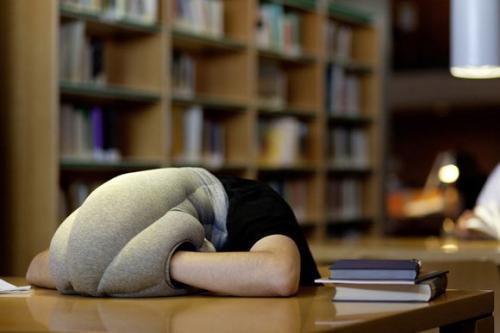(单词翻译:单击)
听力文本
People used to believe that taking an afternoon nap was good for their health. However, according to a new report, daytime dozing may actually harm our health, especially in the elderly. A team of American researchers told the recent International Stroke Conference that older people who regularly napped were more likely to suffer a stroke. Their research showed that “some dozing” increased the risk of a stroke by up to 2.6 times, compared with those who never took naps. “Significant dozing” meant the risk was 4.5 times higher. The researchers said that the habit of napping may be an early warning sign of a future stroke. The team leader, Dr Bernadette Boden-Albala advised doctors to keep a check on older people who often dozed off. She said: “If patients are moderately or significantly dozing, physicians need to think about sending them for further evaluation."

In the two-and-a-half-year study, the team asked 2,000 people how often they dozed off in different situations. These included while watching TV, sitting and chatting to someone, relaxing after lunch, and stopping in traffic while driving. All the participants were aged 40 or above and none had previously suffered a stroke. The team's findings were adjusted to take into account traditional stroke risk factors, such as age, race, gender, education, blood pressure, diabetes, obesity, and levels of exercise. Dr Boden-Albala suggested we need to question what is healthiest for us, saying “sleepiness obviously puts us at risk of stroke". She added this was important to ask because other studies show that people do not get enough sleep, which makes them constantly tired. The study's findings may not be comfortable reading for those in countries where siestas are common.
中文翻译
人们一直以为午睡有益健康。但根据最新研究显示,日间小憩实际对人体有害,特别是老年人。日前,美国研究小组在国际中风会议上表示,经常瞌睡的老年人更容易引起中风。据研究所说,偶尔“小睡”人群比从不“小睡”人群患中风的概率增加2.6倍。但长期瞌睡的患病概率高达4.5倍。研究人员表示,瞌睡或是中风的早期前兆。研究组长伯纳黛特·博登建议医生对长期瞌睡的老年群体进行检查。她认为:“如果病患的瞌睡症状为中度或重度,那么医生需要对病人进行进一步检查。”
在这项为期2年半的研究中,研究小组询问了2000名民众,就不同情况下的瞌睡次数进行了调查。这些情况包括看电视、久坐、与人交谈、午后休息、开车等红灯。被询问者的年龄均为40岁或以上,并从未患有中风。这一发现让我们想到了传统中风病因,例如年龄、种族、性别、教育、血压、糖尿病、肥胖以及锻炼。博登博士认为人们应该想明白什么对自己最健康,她认为:“瞌睡很明显会增加中风几率。”她认为知道这一点非常重要,因为还有许多研究证明,人们的困乏是因睡眠不足所致。对于经常午睡的国家,这项研究或许不会给你带来阅读愉悦感。
译文属可可原创,仅供学习交流使用,未经许可请勿转载
重点讲解
1.chat to 聊天
例句:You can chat to other people who are online.
你可以和其他在线的人聊天。
2.according to 根据
例句:They do everything according to Hoyle.
他们一切都按照规定办理。
3.take nap 小睡
例句:Want to take a nap in Bruce Willis's bed?
想在布鲁斯·威利斯的床上小睡一会吗?
4.be likely to 可能
例句:Noticing that there was likely to be trouble, the coward sneaked away.
那个胆小鬼看到有可能发生骚乱时就溜开了。


